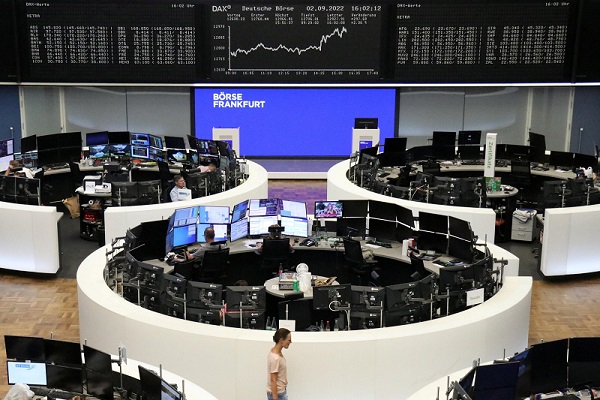Can anything shut down the Gold rally?
Investing.com -- Goldman Sachs has slashed its price targets for European equities, citing a weaker earnings outlook driven by falling energy prices, currency headwinds, and growing macro uncertainty.
The bank now expects 2025 earnings per share (EPS) for the STOXX 600 to decline 7%, significantly below the current bottom-up consensus of 4% growth.
“While markets have reacted sharply to the evolving outlook for trade policy and economic growth, consensus earnings estimates have remained relatively stable this year,” strategists led by Peter Oppenheimer said in a note.
The STOXX 600 has fallen 13% from its March peak, but 2025 EPS estimates have fallen by less than 2% so far.
The strategists see scope for further downward revisions. Historically, there is a strong relationship between market performance and earnings revisions, and the current trajectory suggests that the market is pricing in a cut of over five percentage points.
The energy and basic resources sectors have been notably weak, with falling oil prices and a stronger euro pressuring earnings. Brent crude prices were down 8% year-on-year in the first quarter, contributing to earnings downgrades for energy producers.
Since the beginning of the year, EPS forecasts have been cut by 5% for the energy sector and 12% for basic resources. Moreover, the appreciation of the euro—up 6% from February lows—has weighed on companies with international exposure, which account for about 60% of the STOXX 600’s revenue.
“Consensus estimates now project a 5% year-over-year decline in STOXX 600 EPS for Q1,” strategists noted, with Energy and Financials expected to be the biggest drags.
Reflecting these headwinds, Goldman has downgraded its STOXX 600 index targets to 470, 490, and 520 over the next 3, 6, and 12 months, respectively. This is down from the prior projections of 510, 530, and 570.
Valuations have also come under pressure. The STOXX 600 is trading at 12 times forward earnings, slightly below its long-term average, and near levels typically seen during bear market troughs.
Goldman cautions that in past crises, such as the Global Financial Crisis, European valuations fell as low as 8 times forward earnings.
